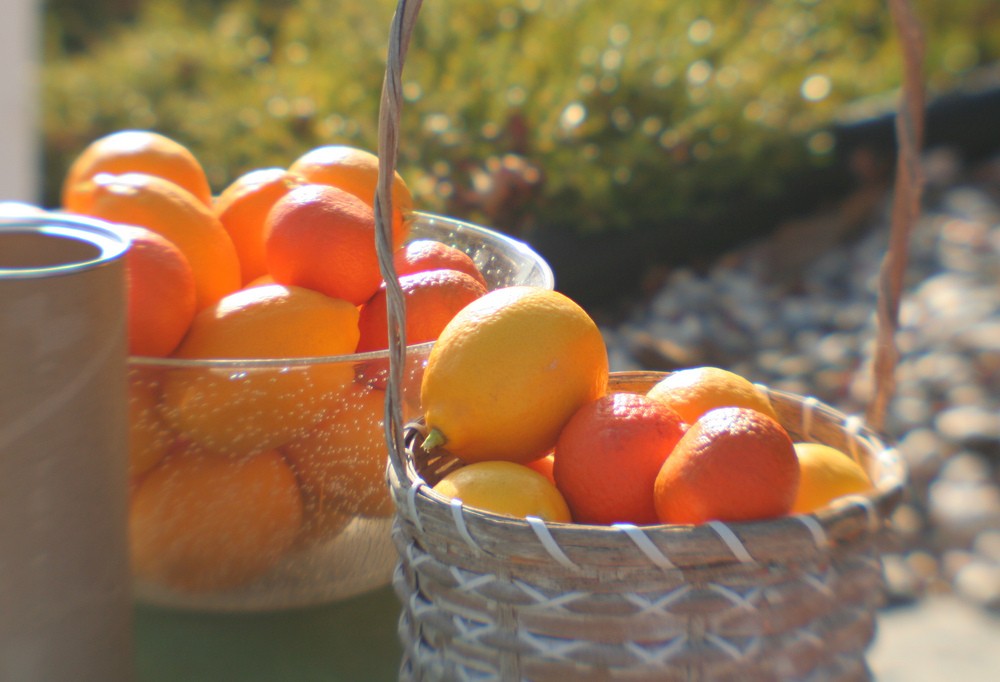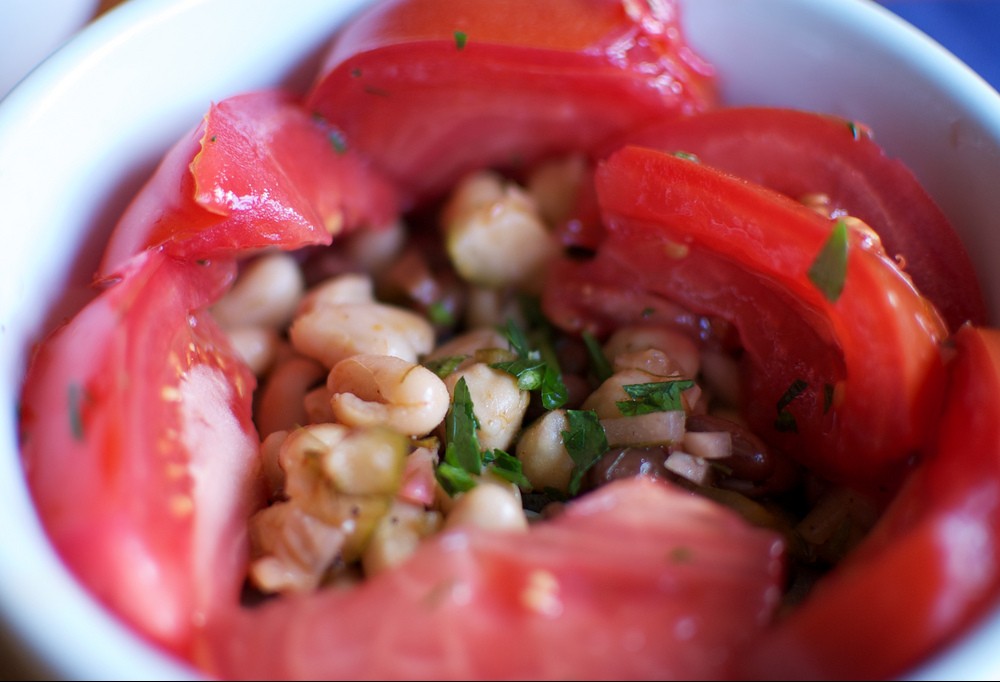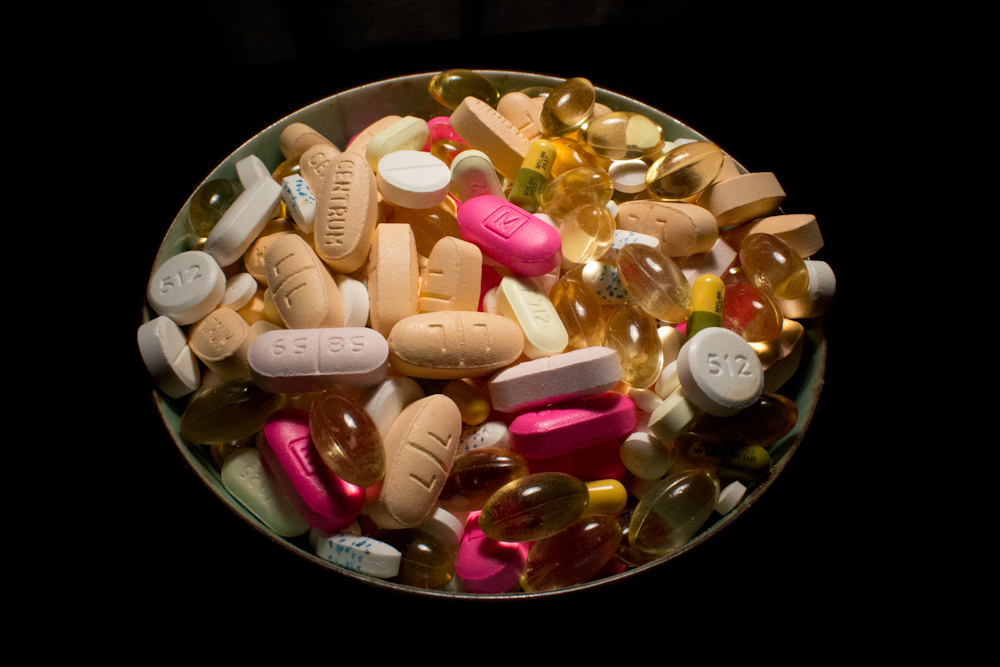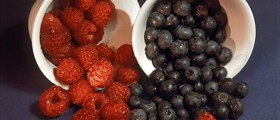
What is oxidative stress?
As we breathe and our cells carry on with their metabolic activities, there is a constant reaction between oxygen and us. This reaction produces other chemical compounds known as free radicals, which are highly reactive and can damage cell components through a chemical process known as oxidation. Our cells have an antioxidant system that keeps the free radicals under control, however, there are some times that oxidative stress is too much to handle, and not even the antioxidant systems are able to deal with it. Free radicals can alter proteins, cell membranes and even genes, producing an irreversible damage in our body.
- Important notification about information and brand names used in this slideshow!
- Photo courtesy of Bhernandez by Flickr : www.flickr.com/photos/kennyuhh/2917293212/
- http://www.netdoctor.co.uk/focus/nutrition/facts/oxidative_stress/oxidativestress.htm UTTARA, B., SINGH, A. V., ZAMBONI, P. & MAHAJAN, R. T. 2009. Oxidative stress and neurodegenerative diseases: a review of upstream and downstream antioxidant therapeutic options. Curr Neuropharmacol, 7, 65-74.

Say no to environmental stress
The first thing you have to do to avoid damage by oxidative stress is getting rid of the environmental stressors. But, what do we mean by this? Cigarette smoke, alcohol, air and water pollution, pesticides and processed foods are considered cell stressors because they increase the production of free radicals. It is true that we live in a society where it is very difficult to avoid those things we just mentioned. It is difficult but not impossible. Start by avoiding places where people smoke, or if you smoke, try to reduce the amount of cigarettes per day. Also, give yourself a break to breathe fresh air and always prefer natural over processed foods.
- Important notification about information and brand names used in this slideshow!
- Photo courtesy of Austin White by Flickr : www.flickr.com/photos/kingautmanthe3rd/6778165305/
- FUCHS, J. & PACKER, L. 2001. Environmental stressors in health and disease, New York, Marcel Dekker.

Protect yourself from the sun
Our skin is the layer that protects us from microbes and toxic substances present in the environment. Everyday, it is exposed to more things than you can imagine, including UV radiation and pollution. These last two cause the formation of free radicals that damage the skin cells and make them vulnerable. As a result of chronic oxidative stress, your skin starts to stain and to wrinkle faster than it should. But it can get worse: your skin cells could be so damaged that cancer could appear. Taking care of your skin by using sunscreen and avoiding UV radiation is the bets thing you can do to prevent oxidative damage.

Try an antioxidant diet: citrus fruits and berries
There is plenty of scientific evidence that shows the high content of antioxidants present in berries and citrus fruits, such as oranges, limes, lemons and grapefruits. They can provide you with antioxidants to keep your cells happy, specially your immune cells. Drinking natural orange juice or having a grapefruit in the morning will definitely strengthen your immune system and will help you maintain a good antioxidant system to avoid cell damage and prevent premature aging. Just remember to prefer natural fruits to processed juices and pulps. Sometimes the fabrication process alters their antioxidant composition and may not be as helpful as the natural fruit.
- Important notification about information and brand names used in this slideshow!
- Photo courtesy of John Morgan by Flickr : www.flickr.com/photos/aidanmorgan/6753209915/
- VINSON, J. A., LIANG, X., PROCH, J., HONTZ, B. A., DANCEL, J. & SANDONE, N. 2002. Polyphenol antioxidants in citrus juices: in vitro and in vivo studies relevant to heart disease. Adv Exp Med Biol, 505, 113-22.

Don't forget the veggies
Veggies are also rich in antioxidants, although some of them have more antioxidants than others. According to researchers at the Human Nutrition Research Center on Aging at Tufts University, kale, spinach, Brussels sprouts, broccoli, beats, onions, corn, red bell peppers and eggplants are the vegetables with the higher content of antioxidants. Tomatoes, garlic, carrots, peppers and squash also have an important amount of these chemical compounds. In order to keep their antioxidant content, veggies must be either griddle, baked or steamed. Try not to boil them, as this alters considerably their nutritional and antioxidant properties.
- Important notification about information and brand names used in this slideshow!
- Photo courtesy of Eunice by Flickr : www.flickr.com/photos/ejchang/7164352220/
- www.rd.com/health/healthy-eating/top-10-antioxidant-rich-fruits-and-veggies/
- JIMENEZ-MONREAL, A. M., GARCIA-DIZ, L., MARTINEZ-TOME, M., MARISCAL, M. & MURCIA, M. A. 2009. Influence of cooking methods on antioxidant activity of vegetables. J Food Sci, 74, H97-H103
- POLIDORI, M. C., PRATICO, D., MANGIALASCHE, F., MARIANI, E., AUST, O., ANLASIK, T., MANG, N., PIENTKA, L., STAHL, W., SIES, H., MECOCCI, P. & NELLES, G. 2009. High fruit and vegetable intake is positively correlated with antioxidant status and cognitive performance in healthy subjects. J Alzheimers Dis, 17, 921-7.

Drink water and green tea
Green tea is particularly rich in flavonoids, a type of molecules with an important antioxidant activity. There are scientific evidences proving the benefits of green tea flavonoids over oxidative stress in isolated cells, animals and humans. So, don’t’ forget to drink a cup of green tea, everyday. This will keep you healthy and your cells ready to fight against free radicals present in the environment, as well as against the ones that are produced inside our body. Drinking 2 liters of water a day will also help your organism to get rid of toxic substances that promote the formation of free radicals.
- Important notification about information and brand names used in this slideshow!
- Photo by shutterstock.com
- COIMBRA, S., CASTRO, E., ROCHA-PEREIRA, P., REBELO, I., ROCHA, S. & SANTOS-SILVA, A. 2006. The effect of green tea in oxidative stress. Clin Nutr, 25, 790-6.

Power yourself up with some exercise
Exercise helps in fighting against oxidative stress in an indirect way. It is true that it doesn’t produce antioxidant molecules, but it maintains the systems that do in optimal conditions. Exercise also reduces the risk of suffering from diseases related to oxidative stress, such as strokes, obesity and diabetes. It is important to mention though, that excessive exercise can promote the formation of free radicals and therefore, of cell damage. How can you know when exercise is damaging instead of helping? A normal adult shouldn’t do more than 30 minutes of aerobic exercise, per day. Otherwise, you will be exposed to injuries and oxidative damage.
- Important notification about information and brand names used in this slideshow!
- Photo courtesy of Port of San Diego by Flickr : www.flickr.com/photos/portofsandiego/7244620020
- POWERS, S. K. & JACKSON, M. J. 2008. Exercise-induced oxidative stress: cellular mechanisms and impact on muscle force production. Physiol Rev, 88, 1243-76.

Rest and sleep well
Have you ever wondered why do we sleep? We are more than 10 hours a day running from one place to another, worrying about school, work and others. We reach a point when our brain can no longer function because it is literally tired. Sleep deprivation can cause neuronal alterations, including cell death. When neurons are damaged and die, they promote the formation of free radicals, which in turn continue with the degeneration cycle. To avoid this, try to sleep from 7 to 9 hours per day, and give yourself small breaks in between activities. This will not only prevent oxidative damage, but will also keep you alert and you will be able to perform your daily activities with more precision and efficacy.
- Important notification about information and brand names used in this slideshow!
- Photo courtesy of Jacopo Romei by Flickr : www.flickr.com/photos/jakuza/4319520576/
- CIRELLI, C. 2006. Sleep disruption, oxidative stress, and aging: new insights from fruit flies. Proc Natl Acad Sci U S A, 103, 13901-2.

Enrich your diet with vitamins and other supplements
Sometimes our diet may lack of the proper amounts of certain vitamins. A solution to this is to take supplements that can provide us with such nutrients. Vitamin E, for example is an antioxidant molecule present in nuts, seed and oils, but can be taken also as a supplement. Just remember that only your doctor can determine whether you need vitamin supplements or not. They may seem harmless, but when taken without medical supervision, supplements can cause severe damage, specially to your liver and kidneys. So, don’t forget to ask your doctor about these supplements before you start taking them.

Choose happiness over sadness
Could there be a relation between our psychological state and the production of free radicals? According to some studies, there is. When we face a stressful situation, meaning feeling anxious, sad, mad, or the three at the same time, the release of adrenaline promotes the formation of oxidative molecules. Also, being stressed affects the efficacy of our antioxidant system, making it less capable to cope with free radicals. So, take time to relax and forget for a moment all those daily situations that make you feel stressed and anxious. Dance, paint, read, talk to your friends or family and always keep a smile on your face.
- Important notification about information and brand names used in this slideshow!
- Photo courtesy of Piotr Pawłowski by Flickr : www.flickr.com/photos/piotrpawlowski/3598717776/
- POLJSAK, B. 2011. Strategies for reducing or preventing the generation of oxidative stress. Oxid Med Cell Longev, 2011, 194586.



























Your thoughts on this
Loading...